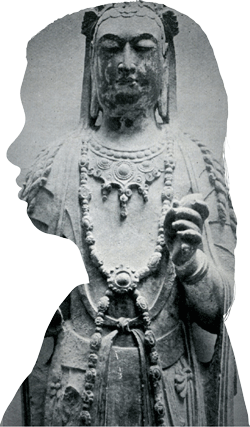Recorded Presentations

The Wisdom of Fools: Christianity and the Break in the Classical Tradition
With Shadi Bartsch“What has Athens to do with Jerusalem?” thundered the church father Tertullian at the end of the second century AD, and the answer implied was: nothing. The triumph of Christianity by the time of Constantine created a radical break with many of the beliefs and practices of the classical past. In the Christian world, classical texts were still read, Greek and Latin were still spoken; but the claims to knowledge found in classical philosophy were not only disowned but even (by some zealots) considered a form of temptation held out by the devil. Where Christianity and its insistence on faith represented “the folly of the wise,” the writings of the philosophers were, in turn, “the wisdom of fools.” Christian thinkers who borrowed from them or tried to reconcile Christianity and Plato had to tread carefully indeed. This lecture explores features of the clash of classical philosophy and the Christian doctrine from late antiquity to the Renaissance and the long-lasting effects of the idea Credo quia absurdum est: “I believe, because it is absurd.” Along the way, we will touch on Socrates, free will, human sexuality, the use of allegory to redeem pagan writing, and, of course, what it means that our intellectual tradition has a radical break caused by the advent of a salvific religion.
Murder Most Foul: “Hamlet” in Recent Film Productions
With David BevingtonVarious interpretations of Hamlet on film in recent decades give some indication of range of possible interpretations of this famous play. This talk will explore some of these interpretations, popular and otherwise.
A Revolution in Poetry: Wordsworth and Coleridge, 1798
With James K. ChandlerFor several years near the end of the eighteenth century, two talented English writers became neighbors, traveling companions, and most importantly, collaborators in a project to reform the ills of English culture in the age of the French Revolution. Their chosen means? Poetry--ballad poetry. The result was the transformative volume, Lyrical Ballads. We will look at what they thought they were doing, what they wrote, and what changes they effected. We'll pay some attention to Wordsworth's famous Preface about the woes of contemporary society.
Metaphor and Ambiguity: Two for the Price of One
With Ted CohenWhen language presents more than one meaning, sometimes the rules of the language determine both meanings—but sometimes not. When the rules are of no use, imagination is required to make and to understand these linguistic wonders. This session will introduce the topic and invite extended discussion.
Preserving the Spell: Fairy Tales and the Future of Storytelling
With Armando MaggiAccording to the Brothers Grimm, the seventeenth-century Italian book titled The Tale of Tales by Giovan Battista Basile was the first and most important collection of oral fairy tales. This book contains the first versions of famous tales such as Cinderella and Sleeping Beauty. The Grimms believed that "The Tale of Tales," written in the Neapolitan dialect, echoed the original myths of the Italian people who, according to the Grimms, were closer to ancient history. Clemens Brentano, another fundamental representative of German Romanticism, held that Basile's book had primarily a literary character and was not just a transcription of oral tales. Both the Grimms and Brentano rewrote some of Basile's most beautiful fairy tales according to their opposite poetic views. This talk examines the adaptations of Brentano and the Grimms and sheds light on why these fundamental tales (e.g., Cinderella) matter today, why their “spell” still seems natural and immutable, and what they may say about the future of storytelling.
Oy ♥ Noo Yawk (But Maybe Not Da Tawk a’ Da Town)!
With Michael SilversteinSuccessful New York City “accent eradication,” as it is termed by speech therapists, while sought by many upwardly mobile clients, nevertheless engenders a kind of panic at the thought of being phonetically deracinated, verbally uprooted, and sonically removed from kith and kin. This talk examines the changing landscape of urban and regional accent here through the lens of a recent report in the digital pages of “Da Noo Yawk Toyms” that caused an instant uproar – in many different accents. Noticeable in particular is an emergent cultural value running counter to long-term trends of stratification of language around a perceived “neutral” standard. It is a kind of American linguistic "AOC" phenomenon, not unlike Europe’s oenological sense of “appellation d’origine contrôlée” and the palpable pleasures it gives of knowing one’s place.
The Vikings and a Turbulent Anglo-Scandinavian World
With Christina von NolckenOn August 14, 2007, Denmark apologized for her part in the ninth-century Viking invasions of Ireland. However, England may also be due for such an apology. This talk will track the Vikings’ impact on medieval England, an impact with effects that are still evident today. This talk will introduce, among others, Ragnar Hairy Breeches, who ended his days in a snake pit; his son, Ivar the Boneless, who was reputedly nine feet tall; Eric Bloodaxe, the last Viking king of York; Olaf Tryggvason, who rammed Christianity down unwilling Scandinavian throats; Svein Forkbeard, who absorbed England into a Denmark-centered empire; and the last of the great Vikings, Harald Hardrada.
The Most Beautiful Story in the World
With David WellberyThe philosopher Ernst Bloch called the brief story Unverhofftes Wiedersehen (Unexpected Reunion) the "most beautiful story in the world." In fact, since its publication in 1811, this "calendar story" by the Alemmanic writer Johann Peter Hebel, who is hardly known outside the German-speaking world, has come to occupy a crucial place in the lives of generations of readers. Walter Benjamin made it the centerpiece of his essay "The Storyteller" and Martin Heidegger discovered in it the essence of poetry. There is perhaps no better place to explore the depth and the power of narrative than with this five-page tale. (Participants who sign up in advance may request copies of the story.)

